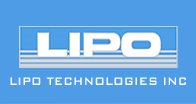Lipobeads are a uniform, spherical, semi-solid matrix of lactose or mannitol, microcrystalline cellulose and hydroxypropyl methylcellulose colored by pigments.
- Supplied as dry microbeads
- Hydrate in aqueous formulations in approx 4-6 hours
- When the product is applied, microbeads disappear upon rub out.
Can withstand high shear processing without breaking
* Two size ranges:
* 700 microns average
- 1500 microns average
- Can contain hydrophobic or hydrophilic core materials.
- Popular internal phases:
- Vitamins A, E and C
- Natural oils such as Tea Tree Oil
- Antibacterial agents such as Triclosan.
- Lipobeads™ contain a maximum load of 5%.
Lipobead™ Product Usage Tips:
The Lipobead™ product line is very easy to utilize when formulating and processing. Follow these simple guidelines to facilitate trouble-free processing and to optimize the stability and utility of the final product.
- Avoid a pH below 6.5 especially when using Lipobeads™ containing ultramarine pigments
- When using Lipobead™ products, avoid strong solvents like:
* Toluene
* Ketones
* Butyl Acetate
* Cyclohexane
* Aromatic Solvents
Formulations must contain a minimum of 15% water for the Lipobeads™ to fully hydrate.
For more information on Lipo Technologies microbead products, please contact us!
Microencapsulation was invented in the 1950's by National Cash Register in Dayton, Ohio for the carbonless copy paper industry. From there the uses for the technology seemed almost endless and a wide variety of industries began to utilize different shell materials, internal phases and techniques to manufacture microcapsules for their specific end use. Lipo Technologies Inc. was incorporated in 1990 and we are a privately held company. Before we became Lipo Technologies we were Djinni Industries, whose claim to fame was encapsulated liquid crystal for mood rings and thermometers. Once we became Lipo we expanded our technology platforms and our customer base. At LTI we consider our true advantage our versatility. We think of ourselves as a solution provider and we come to you with our "toolbox" to help you solve your toughest production dilemmas. Please visit our website to get a brief overview of just some of the technologies we utilize and contact us to discuss your project in further detail.
Monday, May 24, 2010
Subscribe to:
Posts (Atom)

